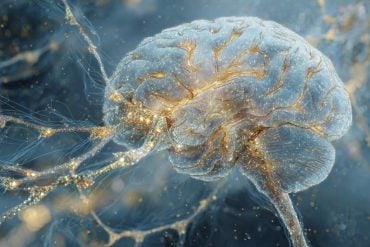Summary: A new mouse study finds APOE genes, commonly associated with Alzheimer’s disease, impairs the development of new neurons in areas of the brain associated with memory.
Source: SfN.
Scientists have taken a step closer to understanding how the strongest known genetic risk factor for Alzheimer’s disease (AD) contributes to memory impairment. Reporting their findings in eNeuro, the researchers demonstrate a critical role of the risk gene in the proper development of adult-born neurons in the hippocampus.
Apolipoprotein E (ApoE) is among the genes that regulate ongoing generation of neurons in the dentate gyrus of the hippocampus. A variant of this gene called ApoE4 — present in 10 to 20 percent of the human population — is also associated with the development of late-onset AD.
Investigating the effects of ApoE on adult neurogenesis, Tzong-Shiue Yu, Steven Kernie, and colleagues found reduced complexity of the dendrites of adult-born neurons in mice with genetically silenced ApoE compared to unaltered mice, as well as in those expressing ApoE4 compared to ApoE3-expressing mice — ApoE3, the most common variant found in humans, is not associated with disease risk.

These findings suggest a potential explanation for the increased risk of neuropsychiatric diseases involving the hippocampus, including AD, among ApoE4 carriers.
Funding: NIH/National Institute of Neurological Disorders and Stroke funded this study.
Source: David Barnstone – SfN
Publisher: Organized by NeuroscienceNews.com.
Image Source: NeuroscienceNews.com image is credited to Tensaouti et al., eNeuro (2018).
Original Research: Abstract for “ApoE Regulates the Development of Adult Newborn Hippocampal Neurons” by Yacine Tensaouti, Elizabeth P. Stephanz, Tzong-Shiue Yu and Steven G. Kernie in eNeuro. Published July 30 2018.
doi:10.1523/ENEURO.0155-18.2018
[cbtabs][cbtab title=”MLA”]SfN”Alzheimer’s Risk Gene Impairs Neurogenesis: Mouse Study.” NeuroscienceNews. NeuroscienceNews, 30 July 2018.
<https://neurosciencenews.com/apoe4-neurogenesis-9635/>.[/cbtab][cbtab title=”APA”]SfN(2018, July 30). Alzheimer’s Risk Gene Impairs Neurogenesis: Mouse Study. NeuroscienceNews. Retrieved July 30, 2018 from https://neurosciencenews.com/apoe4-neurogenesis-9635/[/cbtab][cbtab title=”Chicago”]SfN”Alzheimer’s Risk Gene Impairs Neurogenesis: Mouse Study.” https://neurosciencenews.com/apoe4-neurogenesis-9635/ (accessed July 30, 2018).[/cbtab][/cbtabs]
Abstract
ApoE Regulates the Development of Adult Newborn Hippocampal Neurons
Adult hippocampal neurogenesis occurs throughout life and is believed to participate in cognitive functions such as learning and memory. A number of genes that regulate adult hippocampal neurogenesis have been identified, though most of these have been implicated in progenitor proliferation and survival, but not on the development into fully differentiated neurons. Among these genes, apolipoprotein E (ApoE) is particularly compelling because the human ApoE isoform, E4, is a risk factor for the development of Alzheimer’s disease where hippocampal neurogenesis is reported to be dysfunctional. To investigate the effects of ApoE and its human isoforms on adult hippocampal neurogenesis and neuronal development, retroviruses carrying a GFP-expressing vector were injected into wildtype (WT), ApoE-deficient, and human targeted-replacement (ApoE3 and ApoE4) mice to infect progenitors in the dentate gyrus and analyze the morphology of fully developed GFP-expressing neurons. Analysis of these adult-born neurons revealed significant decreases in the complexity of dendritic arborizations and spine density in ApoE-deficient mice compared to wildtype, as well as in ApoE4 mice compared to ApoE3. These findings demonstrate that ApoE deficiency and the ApoE4 human isoform both impair hippocampal neurogenesis and give insight into how ApoE may influence hippocampal-related neurological diseases.
Significance Statement
Apolipoprotein E is known to regulate postnatal neurogenesis in the dentate gyrus of the hippocampus by directly affecting the proliferation of early progenitor cells. We found reduced complexity of adult-born granule cell dendritic arborizations as well as reduced spine density in ApoE-deficient and ApoE4 mice dentate gyrus neurons. These results provide strong evidence of impaired development of adult-born neurons in ApoE-deficient and ApoE4 mouse hippocampus, which may help explain the higher risk of hippocampal-related neuropsychiatric diseases in humans carrying the E4 allele.






